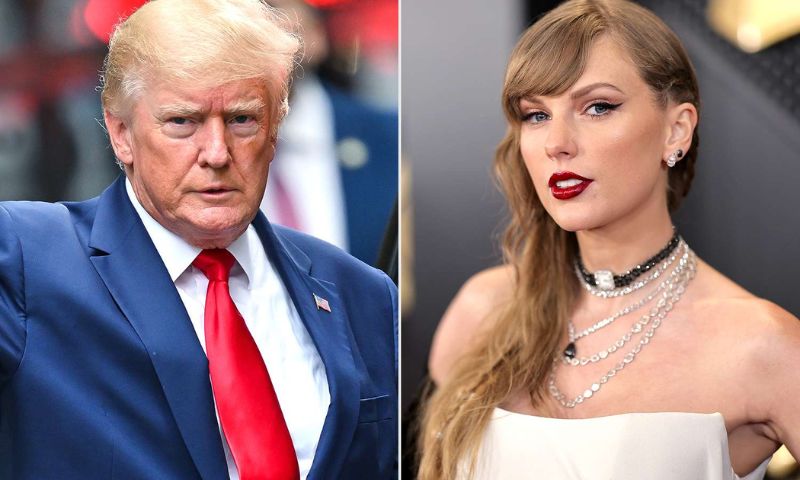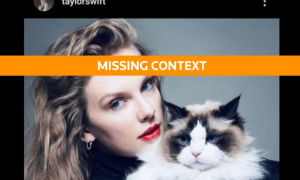LOS ANGELES, USA: Former President Donald Trump sparked controversy by posting a fake image of pop superstar Taylor Swift on his social media platform, Truth Social.
The doctored image showed Swift dressed in patriotic colors with a caption falsely stating, “Taylor Swift Wants You To Vote For Donald Trump.” Trump enthusiastically responded to the fake endorsement with the comment, “I accept!”
Swift, known for her previous support of Democratic candidates, including President Joe Biden in 2020, has not publicly endorsed any candidate for the 2024 election. The false image has raised concerns, especially as Swift has previously criticized Trump in a 2020 documentary.
Trump also shared other misleading content, including photos of women wearing “Swifties for Trump” shirts and a satirical article humorously claiming that Swift’s fans were turning to Trump after a thwarted terrorist attack on her concert.
The satirical article was clearly marked as such, but other images appeared to be deepfakes generated by artificial intelligence, prompting backlash from Swift fans and consumer advocacy groups.
The use of AI to create fake endorsements like this highlights the growing issue of misinformation in the digital age. Public Citizen, a consumer group, criticized Trump’s post as a dangerous example of how AI can be used to spread misinformation, particularly with the potential to influence elections. Advocates from various sectors, including music, entertainment, and politics, are increasingly pushing for federal regulations to curb the misuse of AI-generated content online.
At the Democratic National Convention in Chicago, Swift fans expressed their dismay at the misleading posts. Rebecca Goff, a 39-year-old Swift fan, handed out friendship bracelets at the event, emphasizing that Trump’s values starkly contrast with those championed by Swift. Goff criticized Trump and the GOP, stating they are attempting to diminish the roles of women, reducing them to traditional gender roles.
This incident underscores the ongoing challenges posed by deepfake technology and the critical need for public awareness and regulation to prevent the spread of false information.


























